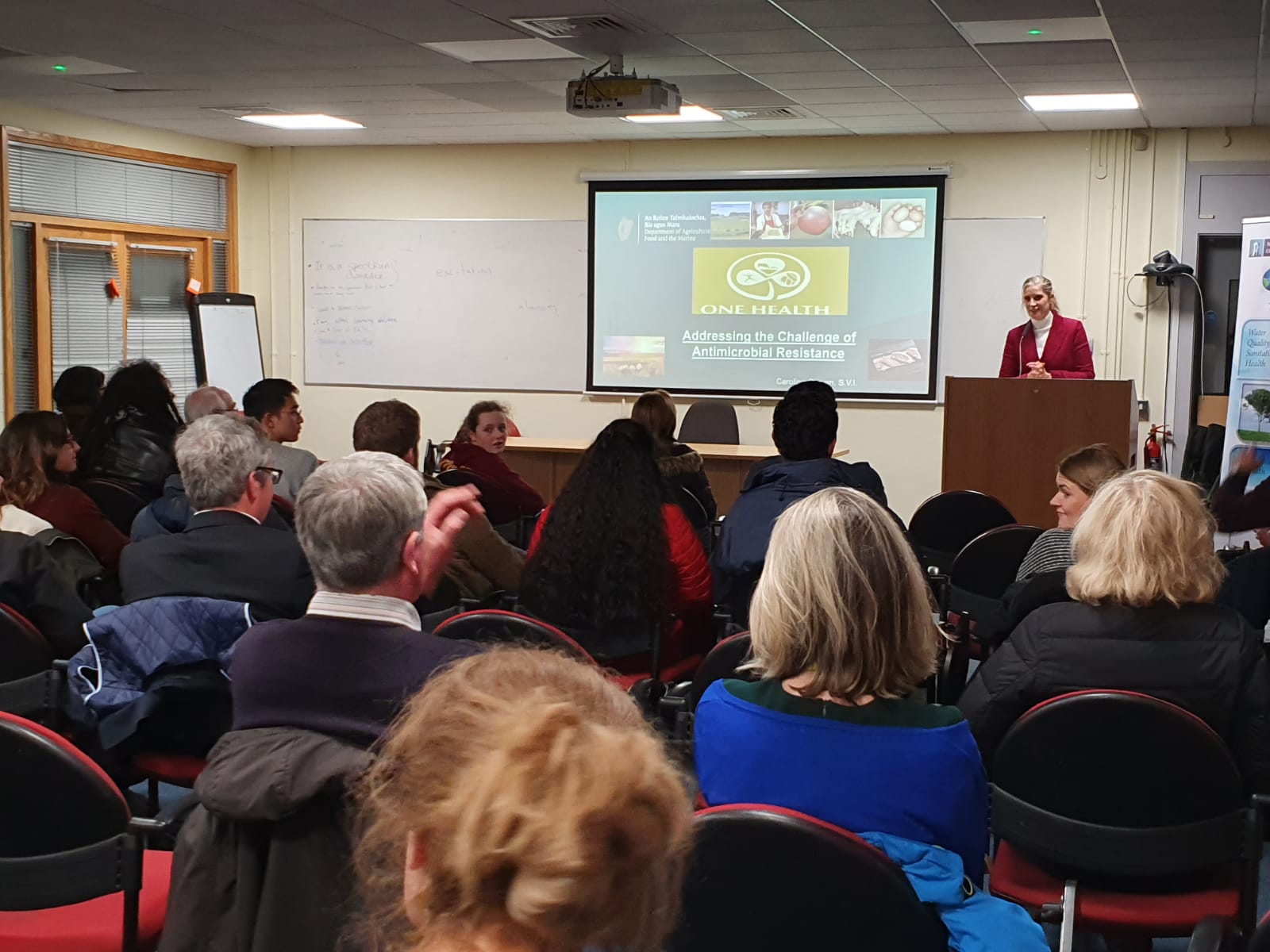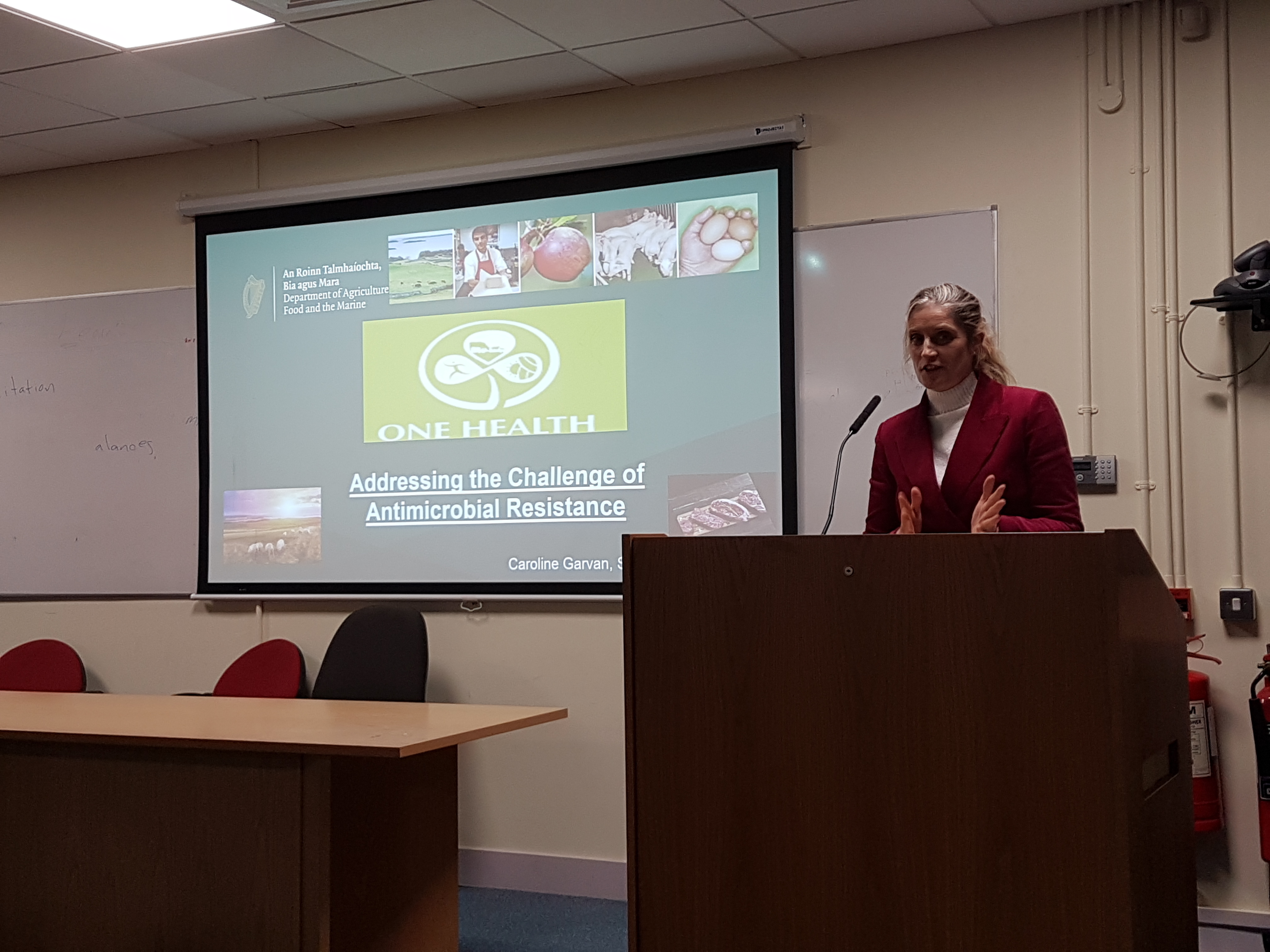-
Courses

Courses
Choosing a course is one of the most important decisions you'll ever make! View our courses and see what our students and lecturers have to say about the courses you are interested in at the links below.
-
University Life

University Life
Each year more than 4,000 choose University of Galway as their University of choice. Find out what life at University of Galway is all about here.
-
About University of Galway

About University of Galway
Since 1845, University of Galway has been sharing the highest quality teaching and research with Ireland and the world. Find out what makes our University so special – from our distinguished history to the latest news and campus developments.
-
Colleges & Schools

Colleges & Schools
University of Galway has earned international recognition as a research-led university with a commitment to top quality teaching across a range of key areas of expertise.
-
Research & Innovation

Research & Innovation
University of Galway’s vibrant research community take on some of the most pressing challenges of our times.
-
Business & Industry

Guiding Breakthrough Research at University of Galway
We explore and facilitate commercial opportunities for the research community at University of Galway, as well as facilitating industry partnership.
-
Alumni & Friends

Alumni & Friends
There are 128,000 University of Galway alumni worldwide. Stay connected to your alumni community! Join our social networks and update your details online.
-
Community Engagement

Community Engagement
At University of Galway, we believe that the best learning takes place when you apply what you learn in a real world context. That's why many of our courses include work placements or community projects.
Resistance Rebellion Event

The Ryan Institute Centre for One Health held a FREE PUBLIC EVENT, on Antibiotic Awareness Day, Monday 18th November 2019 at the Orbsen Building NUI Galway. During this sold-out event members of the public met with experts in human and animal health and discussed what we can all do to tackle antibiotic resistance together.
In the videos below Prof Martin Cormican explains how antibiotic resistant bacteria came about and Caroline Garvan explains what is being done by Department of Agriculture to tackle antibiotic reistance:
Antibiotic resistance is a major problem worldwide. It has been estimated that by 2050, 10 million people per year will die due to infections caused by antibiotic resistant bacteria unless we all take action now. Professor Dame Sally Davies, former England Chief Medical Officer warned earlier this year that antibiotic resistance “could kill us before climate change does”.
The Centre for One Health at NUI Galway decided to organise a public event on Antibiotic Awareness Day, November 18th 2019, to highlight this global problem and inform the public about how we can all play our part in stopping the spread of antimicrobial resistance.
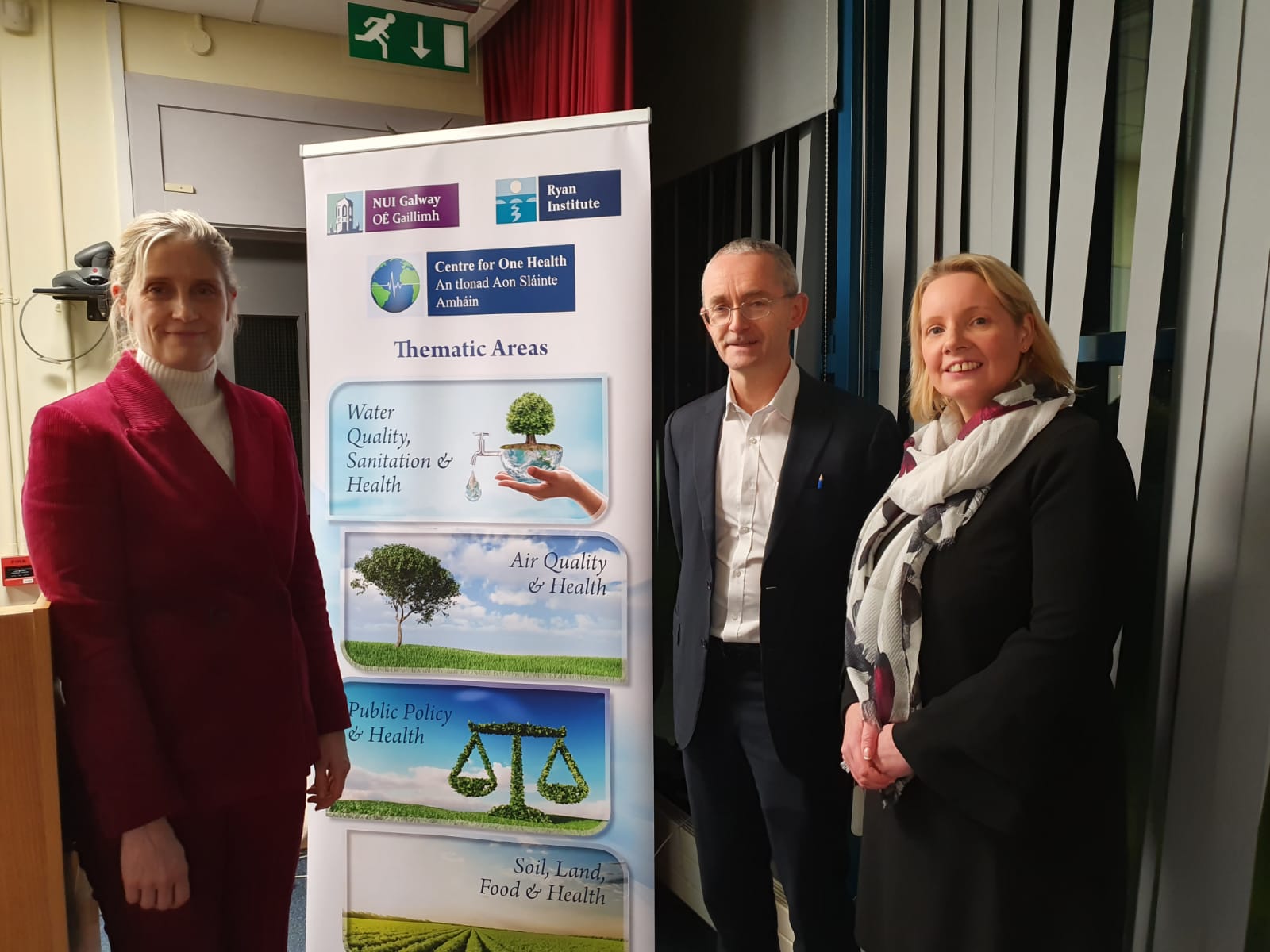
The only effective way to tackle the problem of antibiotic resistance is for us all to work together. The global One Health concept recognises that the health of humans, the health of animals and the health of our environment are interlinked. Antibiotic resistance cannot be effectively tackled without taking a One Health approach. The Irish government, through the publication of Ireland’s National Action Plan on Antimicrobial Resistance in October 2017, and the publication of the first One Health report on Antimicrobial Resistance and Antimicrobial Use in Humans and Animals earlier this year recognises this.
The Centre for One Health at NUI Galway is involved in research investigating the spread of antibiotic resistant bacteria between humans, animals and the environment that we share. The Environmental Protection Agency and the Health Service Executive have been proactive in funding the (Antimicrobial Resistance and the Environment) project, which will help us to better understand what role the environment is playing in spreading antibiotic resistance. The EPA have also funded the (Public health Impact of Exposure to antimicrobial Resistance in recreational waters) project, which will investigate how antimicrobial resistant bacteria in recreational waters impact human health and wellbeing.
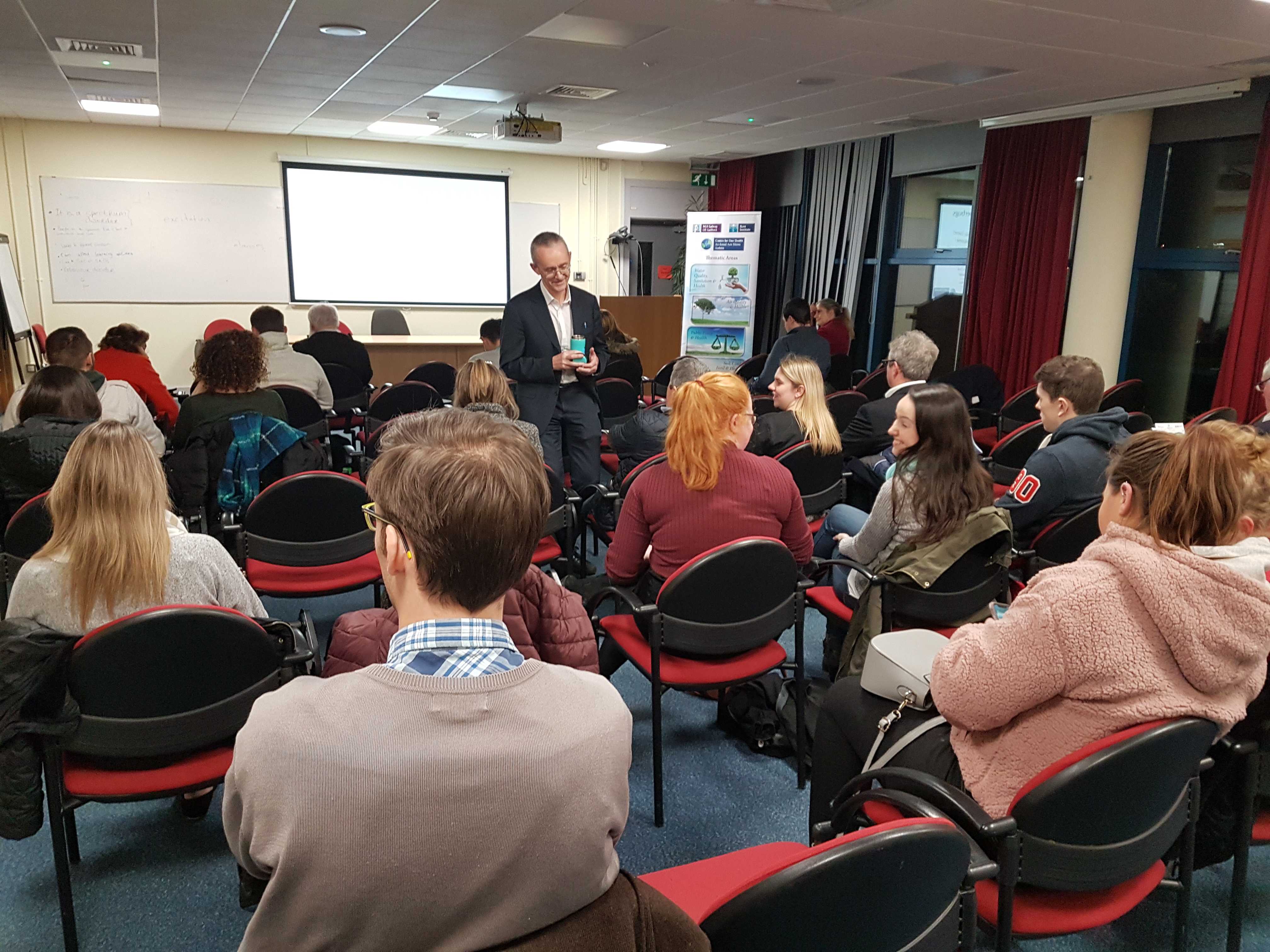
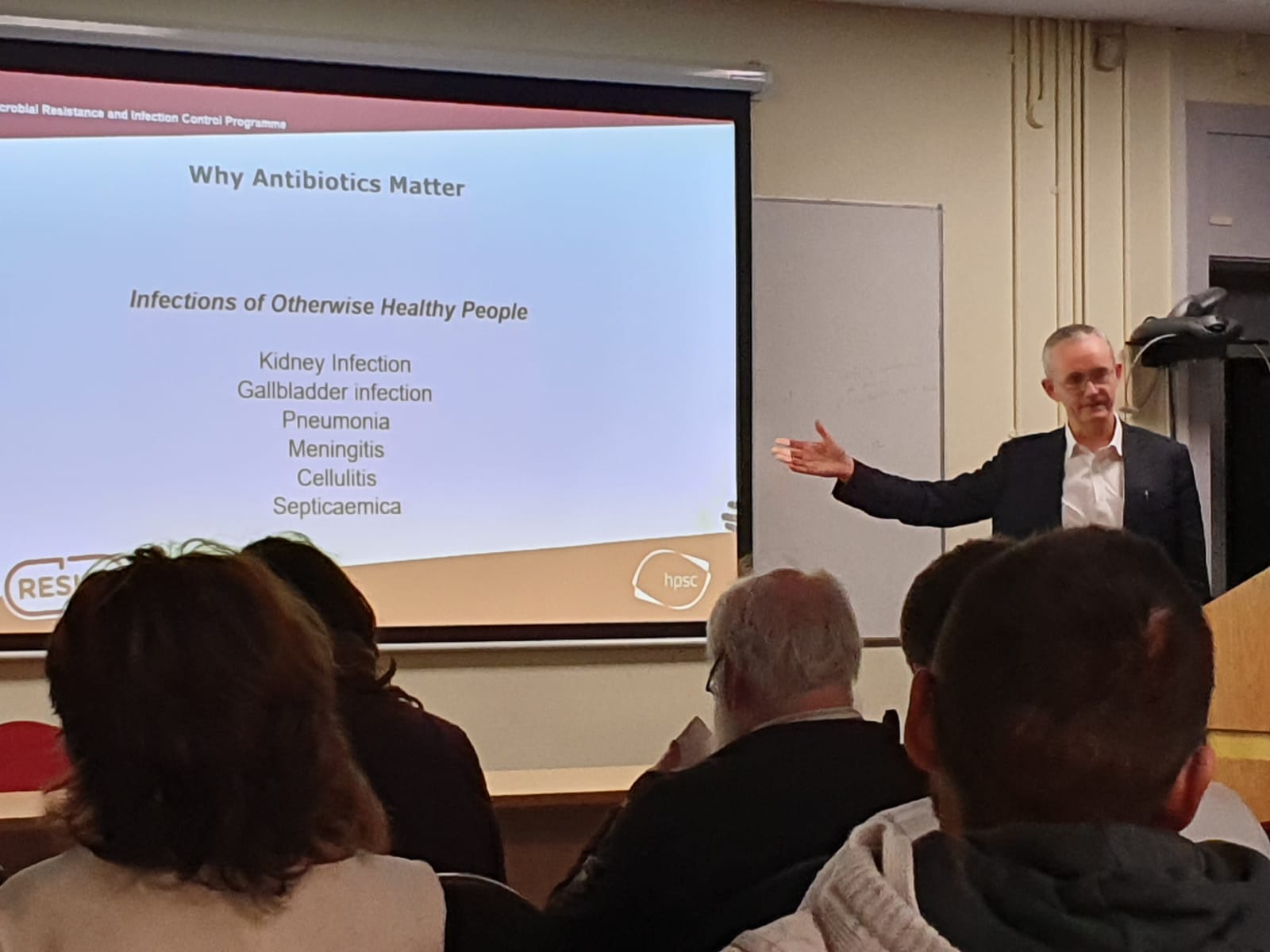
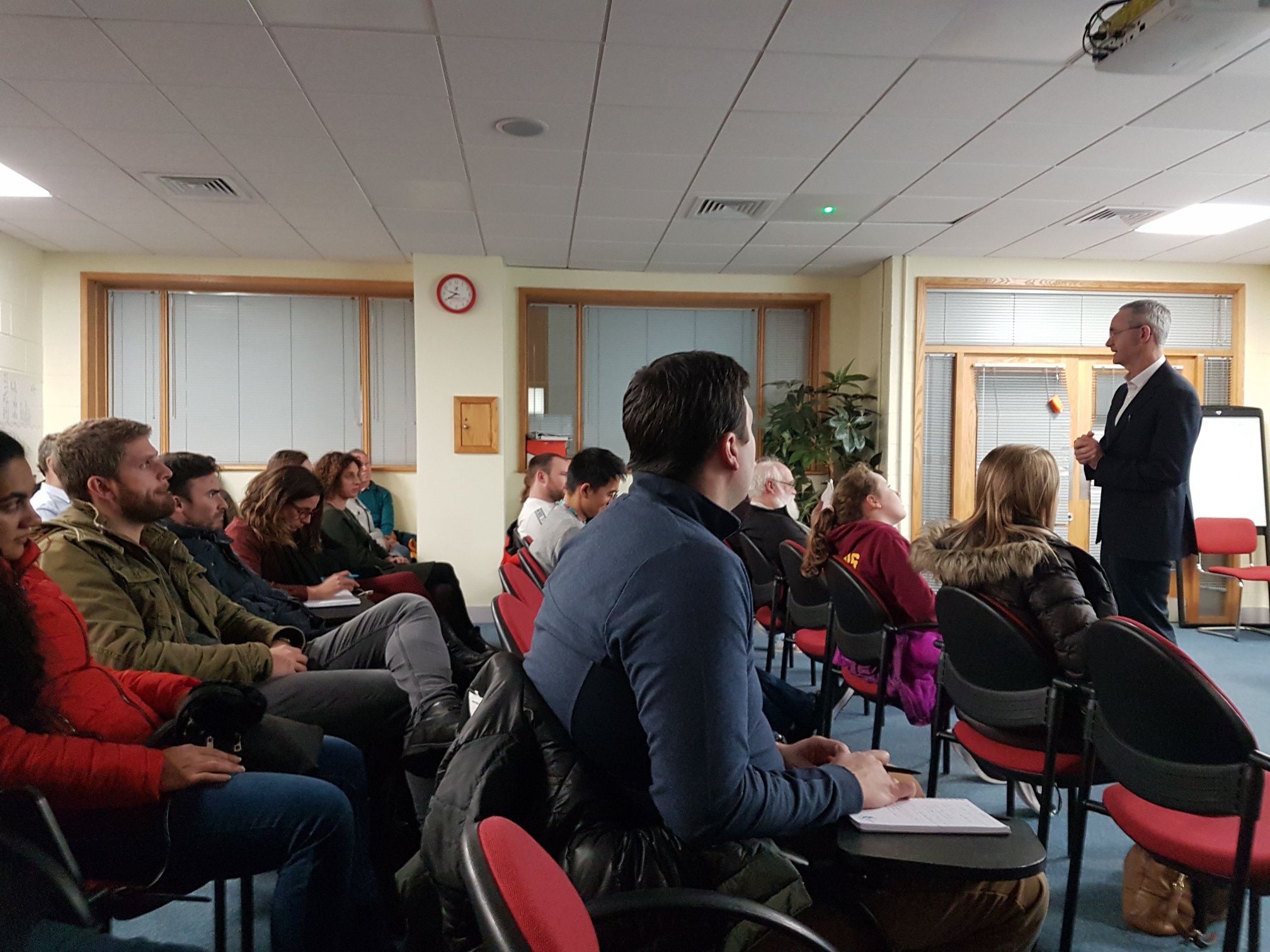
Antibiotics are fantastic drugs that have changed our lives for the better. It is essential we all work together to safeguard antibiotics for future generations. It is not just up to the doctors, vets, scientists and politicians. There is a lot we can all do. We can:
1. Make sure we only use antibiotics when we or our animals need them
2. Make sure we complete the dose as directed by the doctor or vet
3. Do not share antibiotics with others
4. Bring back any unused antibiotics to the pharmacy for correct disposal and don't dump them into the bin or down the sink
5. Wash our hands properly, particularly after using the toilet, to prevent the spread of infection
